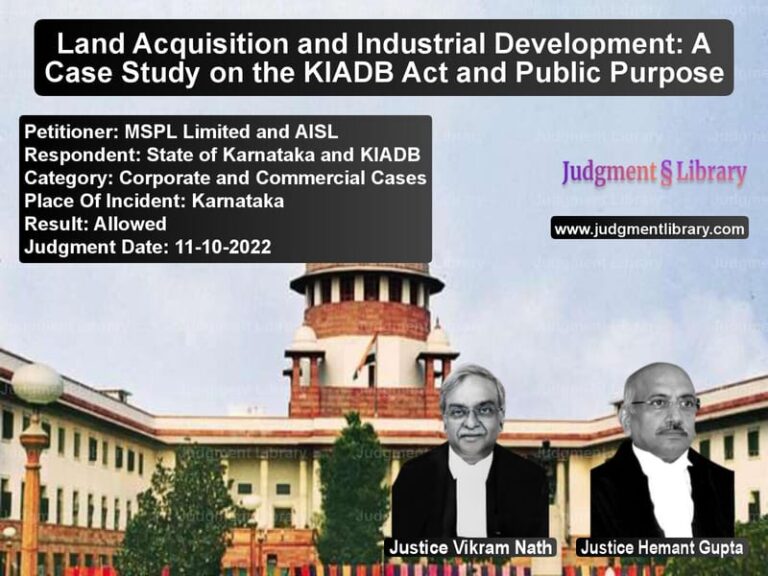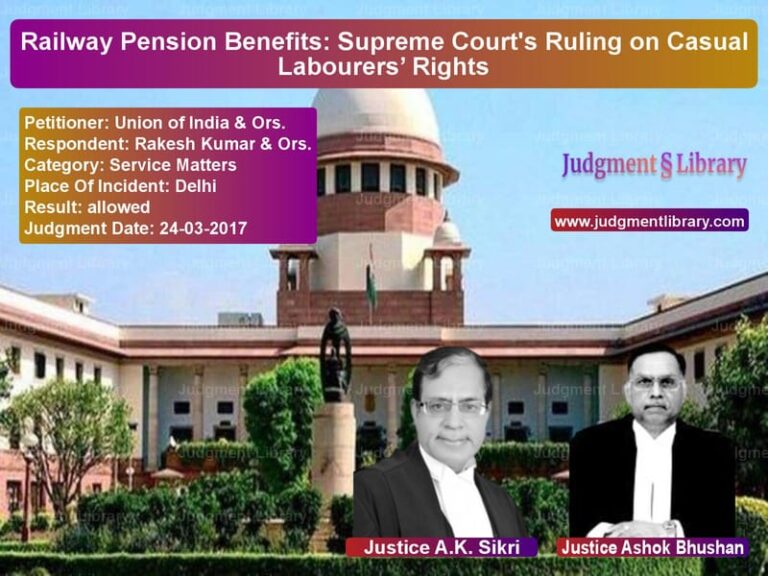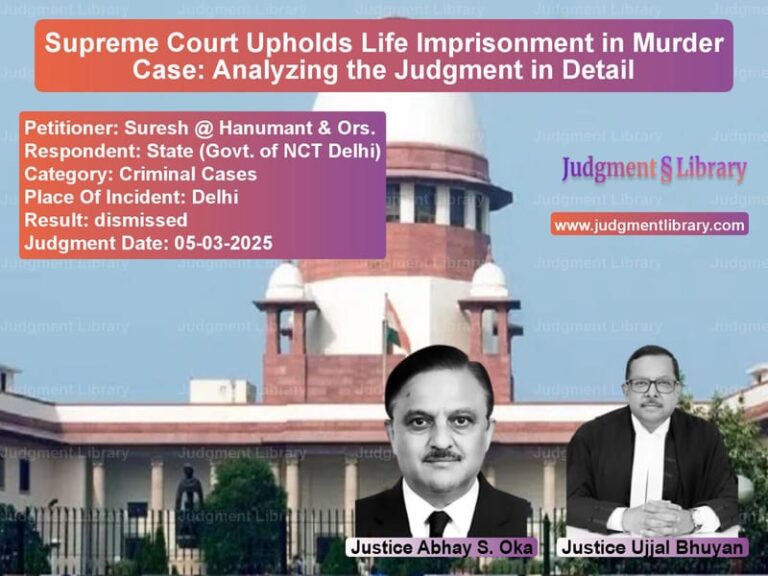Supreme Court Refers Kerala Judicial Service Selection Case to Larger Bench
The Supreme Court of India recently delivered a significant ruling in the case of Sivanandan C.T. & Ors. v. High Court of Kerala & Ors., addressing the selection process for District and Sessions Judges in the Kerala Higher Judicial Service. The Court ruled that changes to selection criteria after the examination process cannot be implemented arbitrarily and referred the matter to a larger bench for authoritative resolution.
Background of the Case
The litigation arose from the selection process initiated by the High Court of Kerala through a notification dated September 30, 2015. The selection was based on a written examination carrying 300 marks (150 marks per paper) and a viva-voce (interview) carrying 50 marks. As per the selection criteria:
- General and OBC candidates needed to score at least 50% in the written examination to qualify for the viva-voce.
- SC/ST candidates needed to score 40% in the written examination.
Initially, there was no minimum cut-off mark for the viva-voce, as per the resolution of the Full Court dated December 13, 2012. However, after conducting the viva-voce, the Administrative Committee, consisting of the same members as the Selection Committee, imposed a minimum mark requirement for the interview. This decision led to the exclusion of certain candidates who had otherwise qualified based on written examination marks.
The excluded candidates filed multiple writ petitions before the Supreme Court, challenging the selection process and alleging that the rules of the game were changed after the examination had already been conducted.
Key Legal Issues Before the Supreme Court
The Supreme Court examined the following key legal questions:
- Whether the imposition of minimum viva-voce marks after the written examination violated candidates’ rights.
- Whether the change in criteria after the selection process had commenced constituted a violation of the principle that “rules of the game cannot be changed after the game has been played.”
- Whether the decision in K. Manjusree v. State of Andhra Pradesh (2008) applied to this case.
- Whether the pending reference in Tej Prakash Pathak & Ors. v. Rajasthan High Court & Ors. (2013) should also cover this case.
Arguments by the Petitioners
The petitioners argued that:
- The Full Court’s 2012 resolution had explicitly stated that there would be no cut-off marks for the viva-voce.
- The sudden imposition of a minimum requirement in the interview stage was arbitrary and unfair.
- They had already cleared the written examination under the original selection criteria and were unfairly disqualified post facto.
- The Supreme Court, in K. Manjusree v. State of Andhra Pradesh, had ruled that any alteration in selection criteria after the process had begun was impermissible.
Arguments by the Respondents
The Kerala High Court and the Selection Committee defended their decision, stating:
- The imposition of a minimum cut-off in the viva-voce was necessary to ensure that only the most meritorious candidates were selected.
- The resolution of 2012 did not expressly prohibit fixing a minimum standard in the viva-voce.
- Judicial appointments were of high public importance, requiring stringent selection standards.
Supreme Court’s Observations
The Supreme Court critically analyzed the validity of the selection process and stated:
“The main contention is that the rules of the game could not have been changed after the game is played and the result of the game is known to the selectors.”
The Court referred to the precedent set in K. Manjusree v. State of Andhra Pradesh (2008), where:
- The Andhra Pradesh High Court had introduced minimum interview marks after the written examination.
- The Supreme Court ruled that the introduction of minimum viva-voce marks after the process had concluded was impermissible.
The Court further noted that in Tej Prakash Pathak v. Rajasthan High Court (2013), the correctness of the Manjusree decision was doubted and had been referred to a larger bench. A similar issue had also arisen in Salam Samarjeet Singh v. High Court of Manipur (2016), which was also under consideration.
Final Judgment
Given the pending reference in Tej Prakash Pathak, the Supreme Court:
- Referred this case to a larger bench for an authoritative pronouncement on the legality of post facto changes in selection criteria.
- Ordered that this case be heard alongside Tej Prakash Pathak and Salam Samarjeet Singh.
- Did not grant immediate relief to the petitioners but left the final determination to the larger bench.
Impact of the Judgment
The ruling has significant implications:
- It affects judicial appointment procedures across India, ensuring transparency and fairness.
- It prevents recruitment bodies from making arbitrary changes after the examination process.
- It upholds the rule that “rules of the game cannot be changed after the game is played” unless otherwise permitted by law.
Conclusion
The Supreme Court’s referral of Sivanandan C.T. v. High Court of Kerala to a larger bench ensures that the legality of post facto changes in judicial selection will be decided authoritatively. This case underscores the importance of fairness in recruitment and prevents arbitrary changes in examination criteria. The outcome of the larger bench’s ruling will have far-reaching consequences for recruitment processes in both judicial and administrative selections across India.
Don’t miss out on the full details! Download the complete judgment in PDF format below and gain valuable insights instantly!
Download Judgment: Sivanandan C.T. & Or vs High Court of Kerala Supreme Court of India Judgment Dated 14-11-2017.pdf
Direct Downlaod Judgment: Direct downlaod this Judgment
See all petitions in Recruitment Policies
See all petitions in Public Sector Employees
See all petitions in Promotion Cases
See all petitions in Judgment by Kurian Joseph
See all petitions in Judgment by R. Banumathi
See all petitions in Remanded
See all petitions in supreme court of India judgments November 2017
See all petitions in 2017 judgments
See all posts in Service Matters Category
See all allowed petitions in Service Matters Category
See all Dismissed petitions in Service Matters Category
See all partially allowed petitions in Service Matters Category







